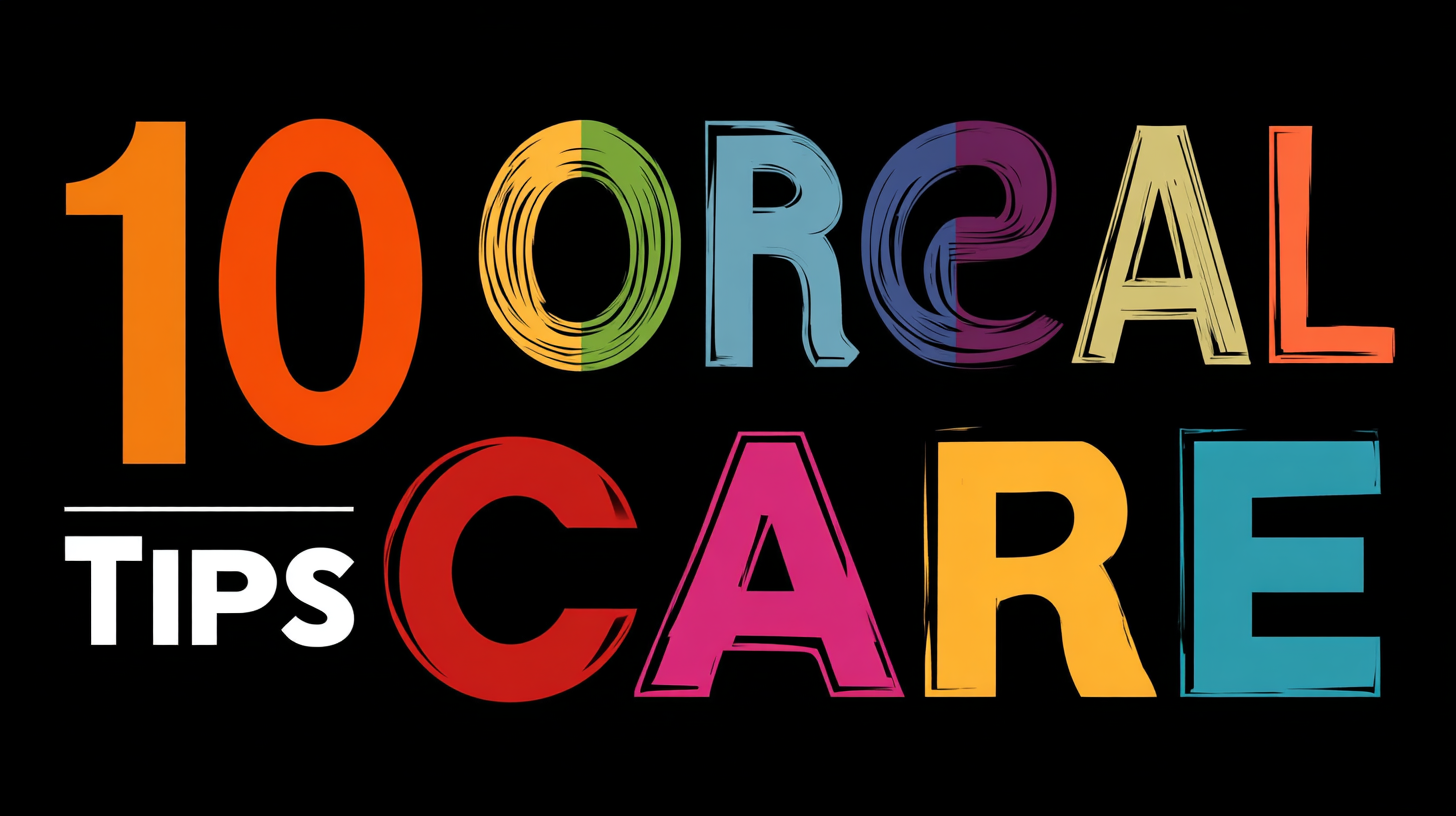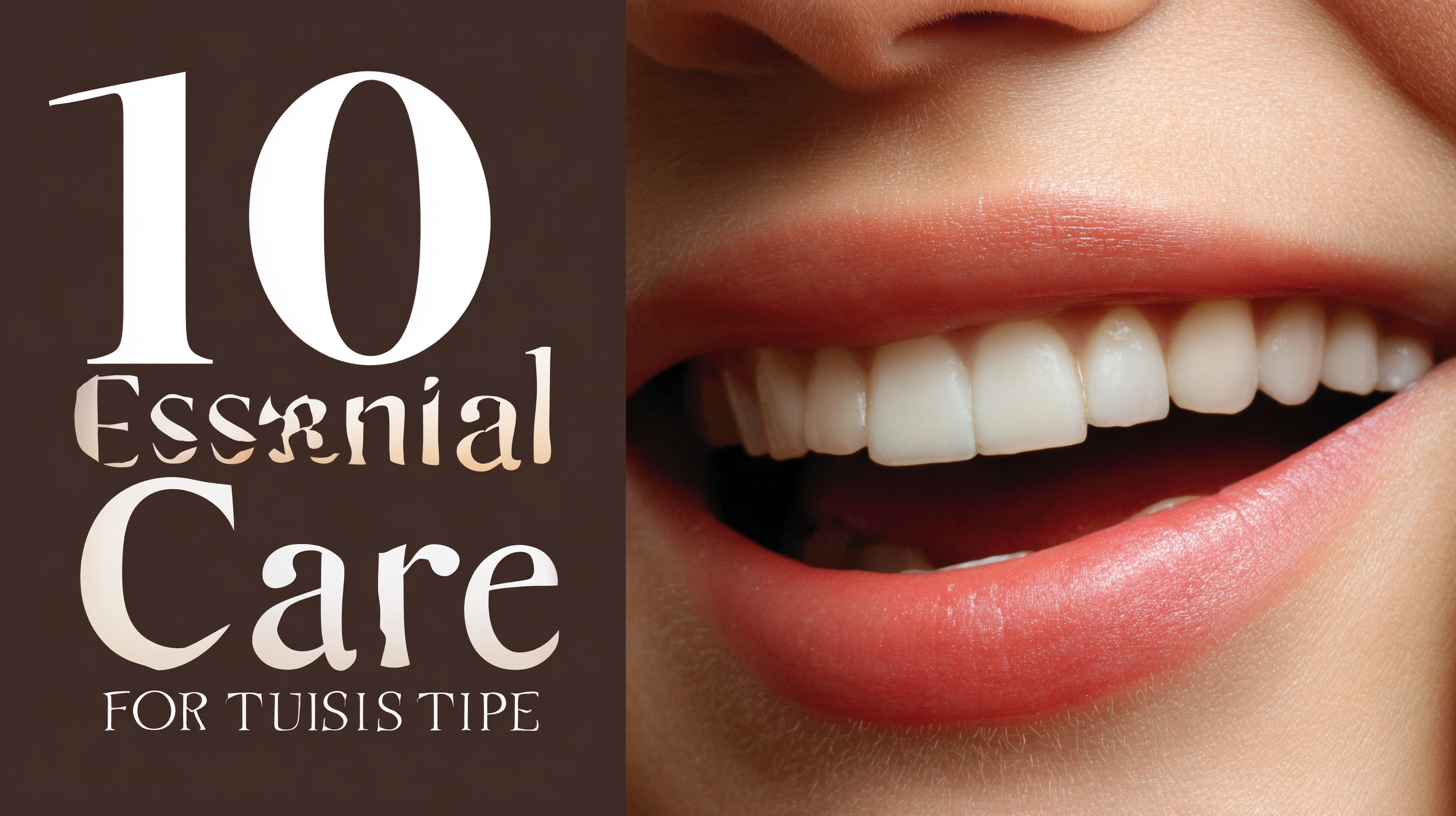10 Essential Tips for Achieving the Best Oral Care Worldwide
Oral care is a critical component of overall health, yet statistics reveal that nearly 50% of adults globally have experienced some form of oral disease, according to the World Health Organization. Poor oral hygiene can lead to serious health issues, including heart disease, diabetes, and respiratory problems. In response to these alarming figures, it is essential to prioritize effective oral care practices.

This ultimate guide explores ten essential tips that not only promote better dental hygiene but also emphasize the importance of preventive measures in oral health. By adopting these strategies, individuals can significantly enhance their oral care routines, ensuring not just a brighter smile but also a healthier lifestyle.
The Importance of Consistent Oral Hygiene Practices Across Cultures
Consistent oral hygiene practices are crucial for maintaining overall health, yet they often vary significantly across cultures. According to the World Health Organization (WHO), nearly 3.5 billion people worldwide suffer from oral diseases, indicating a pressing need for improved oral care practices. The disparities in oral health status can often be traced back to cultural differences in habits, access to dental care, and health education. For instance, in many Asian countries, the use of traditional methods such as chewing stick or natural herbs remains prevalent alongside modern dental hygiene products, showcasing a blend of cultural practices in maintaining oral health.
Data from the Global Burden of Disease Study 2017 highlights that untreated dental caries affects 2.3 billion people globally, emphasizing the universal need for effective oral care. Despite advancements in dental care, there is a significant gap in access to preventive services, especially in low-income regions. Culturally tailored education and consistent oral hygiene practices can bridge this gap, promoting health equity. Initiatives that respect local customs while integrating scientific knowledge could lead to better oral health outcomes worldwide, underscoring the importance of understanding cultural contexts in the fight against oral diseases.
Innovative Technologies Revolutionizing Oral Care Globally
Innovative technologies are transforming the landscape of oral care globally, making it more accessible and effective than ever before. Among the most groundbreaking advancements are smart toothbrushes equipped with sensors and Bluetooth connectivity. These devices track brushing habits in real time, providing feedback on technique and duration. By offering personalized insights, they empower users to improve their dental hygiene practices, leading to healthier smiles across the globe.
Additionally, advancements in tele-dentistry have revolutionized how patients interact with dental professionals. With virtual consultations, individuals can receive expert advice and follow-up care without the need for in-person visits. This technology is particularly beneficial in remote areas where dental services are scarce. Furthermore, AI-powered diagnostics can analyze imaging data more accurately, allowing for earlier detection of oral health issues. Such innovations not only enhance patient care but also contribute to a worldwide increase in oral health awareness, encouraging individuals to prioritize their dental wellness.

Understanding Nutritional Impact on Oral Health in Different Regions
Understanding the nutritional impact on oral health is crucial as we navigate the challenges of an aging global population. With chronic conditions like periodontitis potentially linked to Alzheimer's disease, it is imperative that dietary habits be prioritized in discussions about oral hygiene. Increasing evidence suggests that a diet high in sugars can exacerbate periodontal inflammation, highlighting the need for greater awareness of nutritional choices in maintaining oral health. This connection is especially vital as the elderly demographic grows, with nations like South Korea experiencing rapid increases in aging populations.
Additionally, cultural and environmental factors play a significant role in dietary practices and oral health outcomes. Recent research emphasizes the importance of vitamin D in dental health, showcasing how specific nutrients can bolster oral care and alleviate systemic issues. As we work towards achieving comprehensive oral health worldwide, integrating nutrition into public health policies and preventive strategies will be paramount. By promoting informed dietary choices and improving knowledge about oral health among diverse populations, we can foster healthier communities and enhance the quality of life for individuals across all regions.

The Role of Community Education in Promoting Oral Health Awareness
Community education plays a pivotal role in enhancing oral health awareness, particularly as it pertains to the integration of oral health into broader healthcare frameworks. Recent studies in various regions highlight an alarming gap in knowledge regarding the oral microbiome and its implications for overall oral health. For instance, research among dental professionals in Saudi Arabia indicates a need for better understanding of how oral microbiota influences dental care practices. This underscores the importance of education initiatives that target both healthcare providers and the public to foster a more informed approach to oral health.
In addition, initiatives like the Oral Health Education for Nurses and Community Health Workers project in Nigeria underscore how empowering community health practitioners can lead to improved oral health behaviors among populations. By equipping these individuals with the necessary knowledge and skills, communities can proactively address oral health issues, particularly among vulnerable groups. Furthermore, the role of families in promoting oral hygiene cannot be overstated, as evidenced by studies exploring parental attitudes toward children's oral hygiene in Lithuania. Comprehensive education programs tailored to local contexts can significantly shift attitudes and practices, leading to healthier communities.
Global Oral Health Awareness Levels
This bar chart illustrates the varying levels of oral health awareness across different regions worldwide, highlighting the importance of community education in promoting better oral care practices.
Future Trends in Dental Care: Bridging Gaps and Enhancing Access Worldwide
As the landscape of dental care continues to evolve, bridging gaps and enhancing access remains a critical focus. According to the World Health Organization, nearly 3.5 billion people worldwide suffer from oral diseases, signifying an urgent need for innovative solutions. The integration of tele-dentistry and mobile dental units is streamlining access for underserved communities, allowing patients to receive consultation and care without traveling long distances.
One essential tip for improving oral health globally is to prioritize preventive care. Regular check-ups can significantly reduce the incidence of dental issues, with studies indicating that preventive care can decrease treatment costs by up to 40%. Additionally, educating communities about proper oral hygiene practices, such as brushing twice daily and flossing, can create a profound impact. The incorporation of technology, like apps that remind users to maintain their oral hygiene routine, can further enhance compliance and awareness.
Another vital trend is the adoption of teledentistry, which has gained momentum, especially during the pandemic. Enhancing digital communication between patients and providers not only improves accessibility but also fosters ongoing patient engagement. Developing user-friendly platforms will encourage patients to seek necessary dental care, ultimately bridging the gap in access to essential services. Embracing these innovations is crucial for fostering a healthier future for individuals around the world.
